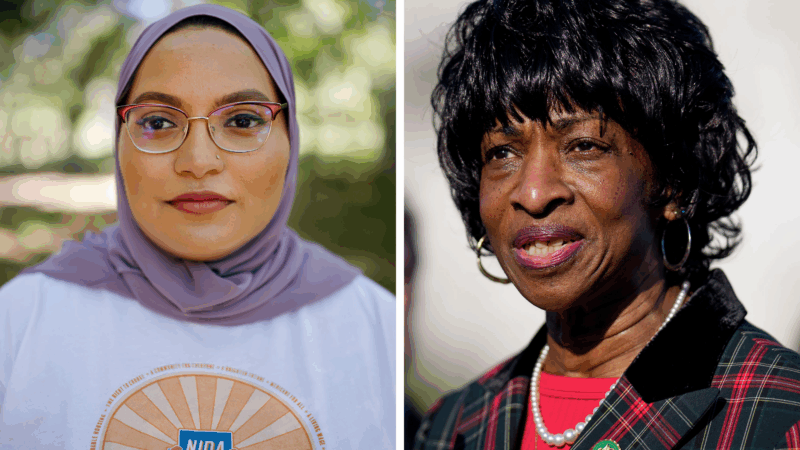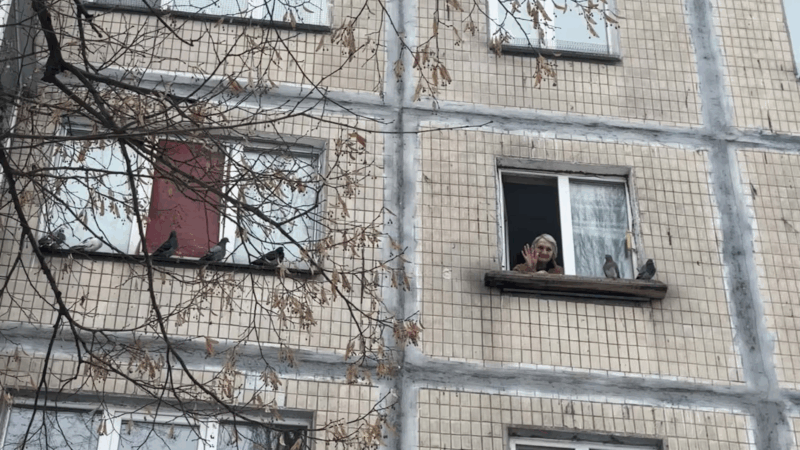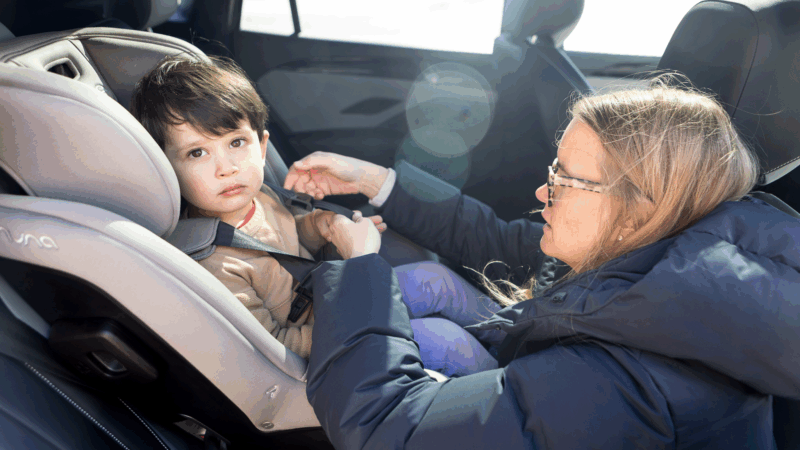Lessons of the Little River Canyon Center
Focus: The Little River Canyon Center
Lessons From A Wild Corner Of Alabama
“If a rattlesnake bites a king snake, they’ve got that natural
anti-venom so it does not hurt the king snake. It’ll simply swallow the rattlesnake whole.”
Hmmm. That’s just one of the attention-grabbing parts of veteran environmental educator Renee Morrison’s lesson this morning. And although the talk itself may be interesting (especially to snake-lovers or snake-haters), high school
students learning about nature in a classroom isn’t all that unusual.
But going outside to look for fake snakes after being warned not to touch them just in case they’ve found a
real one? That is.
These chemistry students from Coosa Christian High aren’t just learning about snakes here at the Little
River Canyon Center. They’re learning to be observant.
Says science teacher Loey Mills, “Get ’em outside, and their brains just turn on. I need to get my students out more. It’s
just limitless.”
But even after being prepped on what to look for and how to look, the kids missed two-thirds of the
snakes hidden along the trail — a sign of how we’re all losing touch with nature and the ability to put
down our gadgets and observe, let alone think.

Morrison, president of the state environmental educators association and coordinator of Jacksonville State University’s field schools, adds, “What we’re running into is a generation of students with a nature-deficit disorder.”
Her point isn’t just squishy tree-hugger sentimentality. On teaching the
observation skills so useful outdoors, she tells the students from Coosa Christian High:
“We’ve studied these kids — some of them we’ve started teaching these skills when they
were about four years old — they get in sixth grade, and they take their standardized tests: their scores
are going up. We’ve got teachers calling us saying, ‘Your observation techniques are helping us do better
on the ACT.'”
But those subjects and techniques aren’t the only ones on the menu at the Canyon Center. Ricky
Harcrow, longtime area resident, preacher, and Dekalb County Commission President, says the offerings
go beyond the regular curriculum:
“We teach Alabama history, but we really don’t get down to brass tacks with it. The
northeast Alabama area was part of the Cherokee Indian Nation. [The Little River Canyon Center] gives education
about the Trail of Tears that came through here. I’ve been here all my life and I can tell you, I’ve not
known about it ’til just the last few years, thanks to this place.”
As Park Rangers explain to students of all ages, from the back deck of the Canyon Center you can look
over a small creek valley where the Cherokee marched in 1838. Not far from that, many died crossing
Little River Canyon.
And speaking of lessons in the land, JSU professors would use the area as “textbooks laid out,” says John Bundy of the National Park Service, Superintendent of Little River Canyon National Preserve and Russell Cave National Monument.
“And they could come up and they
would teach geology and they would teach biological sciences and they’d talk about endangered species
and all of those kinds of things.”

Now you can add astronomy, bird-of-prey
shows, and arts programs, just to name a few. The center even gets some funding from NASA’s
education arm.
Speaking of funding, the Park Service rents its headquarters at the Canyon Center, which also has
conference rooms, a catering kitchen, a high-def surround-sound movie theater, bilingual programs, and
soon, an amphitheater for plays and concerts. There’s a lot going on here. Pete Conroy, JSU field school
and environmental policy director, offers an example:
“The National Park Service had a Law Enforcement Day where there was a group learning
how to assemble machine guns, and the classroom that had snakes and butterflies a couple hours ago,
had parts — metal weapons — all over the table tops.”
If there’s one man responsible for the Little River Canyon Preserve and the $7-million Canyon
Center, it’s Pete Conroy. One reason he says he fought for the place is, “You get kids up here and education just flows. The group this morning — these were kids
from the city, who had really not had a lot of time in the wilderness, and they came a little worried
about this, and they left smarter and happier. It’s a great way to organically educate people, and inspire
them to be problem-solvers.”
And speaking of organic and problem-solving, the center walks its ecological talk down to its very blueprints.
Its rockwork is made of recycled fly ash from a TVA coal plant. Rain from the roof waters native gardens.
It has a geothermal system corporations and schools are studying as a model.
Since it was built with public and private money in 2008, more than 60,000
students have passed through the Little River Canyon Center on their way to a sense of wonder and an
educational experience they’d be hard pressed to get anywhere else.
Why is the U.S. attacking Iran? Six things to know
The U.S. and Israel launched military strikes in Iran, targeting Khamenei and the Iranian president. "Operation Epic Fury" will be "massive and ongoing," President Trump said Saturday morning.
Unlocking the secrets of an ancient plague
The first historically recorded pandemic is believed to have struck the walled city of Jirash, in what is now modern-day Jordan, in the 7th century. A new study reveals details about those who died.
Panic, fury, and some hope, in Iran as U.S. launches strikes
In Tehran, panicked residents rushed home to shelter and terrified children poured out of classrooms as U.S. air strikes hit the capitol.
North Carolina Democrats latest to chart future of the party in congressional primary
In a safe Democratic seat in North Carolina, a match-up between a two-term Congresswoman and a progressive local official show how Democrats are charting the future of their party in the age of Trump.
Kyiv’s elderly endure blackouts and bombardment, clinging to warmth and hope
In Kyiv's darkened high-rises, as Russian strikes batter the Ukrainian capital, older residents endure freezing nights and power cuts, relying on volunteers, pets and faith to survive another winter.
Parents, are you sure your kid’s car seat is installed right? Here’s how to know
In this visual guide, certified car seat experts walk through common installation mistakes and how to fix them. Learn what a secure car seat base and a tightly fastened tether look like and more.






